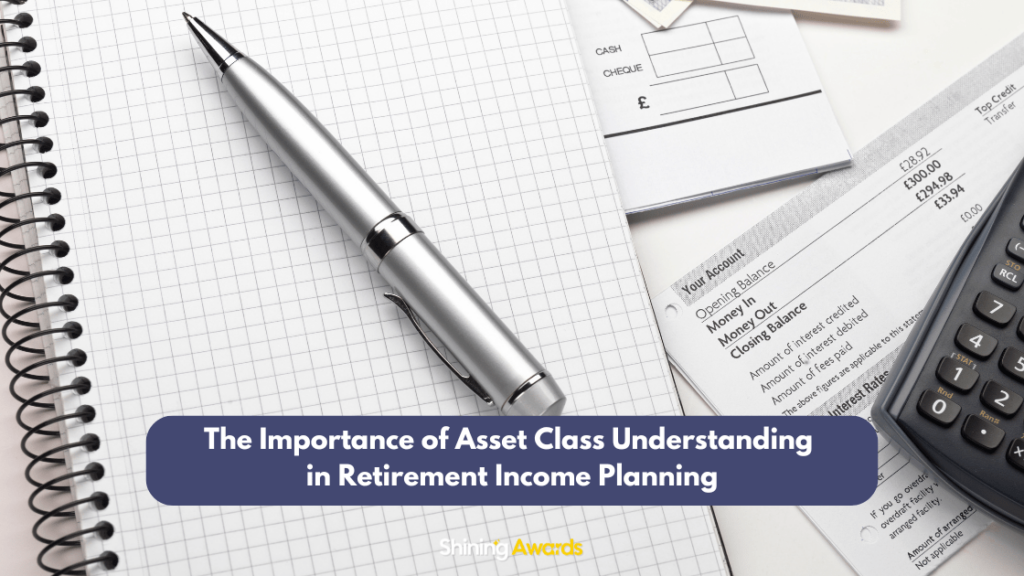The Importance of Asset Class Understanding in Retirement Income Planning
The Importance of Asset Class – Embark on a journey toward mastering retirement by understanding the critical role of asset class allocation. Explore the complexities of financial planning for the future and discover how strategic asset allocation can shape your path to financial security. This article delves into the significance of diversification across asset classes, the impact on retirement income, and strategies for navigating market dynamics. In addition, if you are planning to trade crypto like Bitcoin, you may consider visiting a reliable trading platform like https://bitqz.app/.

The Importance of Asset Class
The Role of Asset Allocation in Retirement Planning:
Asset allocation plays a pivotal role in retirement planning, serving as the cornerstone upon which individuals build their financial security for the future.
This strategic distribution of investments across various asset classes, such as equities, fixed income, and alternatives, is designed to achieve a balance between risk and return tailored to an individual’s unique circumstances and objectives.
By diversifying their portfolio across different asset classes, investors aim to mitigate risk while maximizing the potential for long-term growth.
In the context of retirement planning, asset allocation serves as a guiding principle that helps individuals navigate the complexities of financial markets and economic cycles.
Rather than relying solely on the performance of a single asset class, a diversified portfolio can provide a buffer against market volatility and unexpected events, helping to preserve capital and generate sustainable income throughout retirement.
Moreover, asset allocation is not a one-time decision but rather an ongoing process that requires periodic review and adjustments. As individuals progress through different stages of life and experience changes in financial goals, risk tolerance, and market conditions, their asset allocation strategy may need to evolve accordingly.
Regular rebalancing of the portfolio ensures that it remains aligned with the intended investment objectives and risk preferences, thereby optimizing the potential for achieving long-term financial success.
Balancing Risk and Return:
Balancing risk and return lies at the heart of prudent investment management, particularly in the context of retirement planning where financial security and stability are paramount. The fundamental principle underlying this balancing act is the trade-off between the potential for higher returns and the level of risk inherent in any investment decision.
While higher-risk investments may offer the prospect of greater rewards, they also entail a higher likelihood of volatility and potential loss of capital, which can pose significant challenges for retirees seeking to preserve their wealth and generate income over the long term.
Achieving an optimal balance between risk and return requires careful consideration of various factors, including an individual’s investment objectives, time horizon, and tolerance for risk. Investors must weigh the potential rewards of pursuing higher-risk investments against the potential downside, taking into account their capacity to withstand market fluctuations and absorb potential losses without jeopardizing their long-term financial goals.
Moreover, the concept of risk extends beyond mere market volatility and encompasses a broader range of factors, including inflation risk, interest rate risk, and geopolitical uncertainty, among others.
Diversification across different asset classes can help mitigate these risks by spreading exposure across multiple sources of return, thereby reducing the overall level of portfolio volatility and enhancing its resilience to adverse market conditions.
Understanding Market Dynamics and Economic Trends:
Understanding market dynamics and economic trends is essential for effective investment decision-making, particularly in the context of retirement planning where the preservation of capital and generation of sustainable income are paramount.
Financial markets are influenced by a myriad of factors, including macroeconomic indicators, geopolitical events, technological innovations, and investor sentiment, all of which can have a significant impact on asset prices and market volatility.
Moreover, economic trends such as inflation, interest rates, and GDP growth can directly affect the performance of various asset classes, making it imperative for investors to stay abreast of current developments and trends in the global economy.
By monitoring key economic indicators and market data, investors can gain valuable insights into prevailing market conditions and make informed decisions about asset allocation and portfolio management.
Additionally, understanding market dynamics involves recognizing the cyclical nature of financial markets and the inevitability of market fluctuations over time. While market volatility can present challenges for investors, it also creates opportunities for those who are able to capitalize on mispriced assets and market inefficiencies.
By adopting a disciplined and contrarian investment approach, investors can potentially exploit market dislocations and generate attractive returns over the long term.
Conclusion
In the pursuit of financial security during retirement, mastering asset class understanding is paramount. By embracing the principles of diversification, risk management, and market awareness, individuals can optimize their investment strategies and secure a comfortable retirement. Continual learning and adaptation in financial planning are essential for navigating the ever-changing landscape of financial markets and achieving long-term financial well-being.
